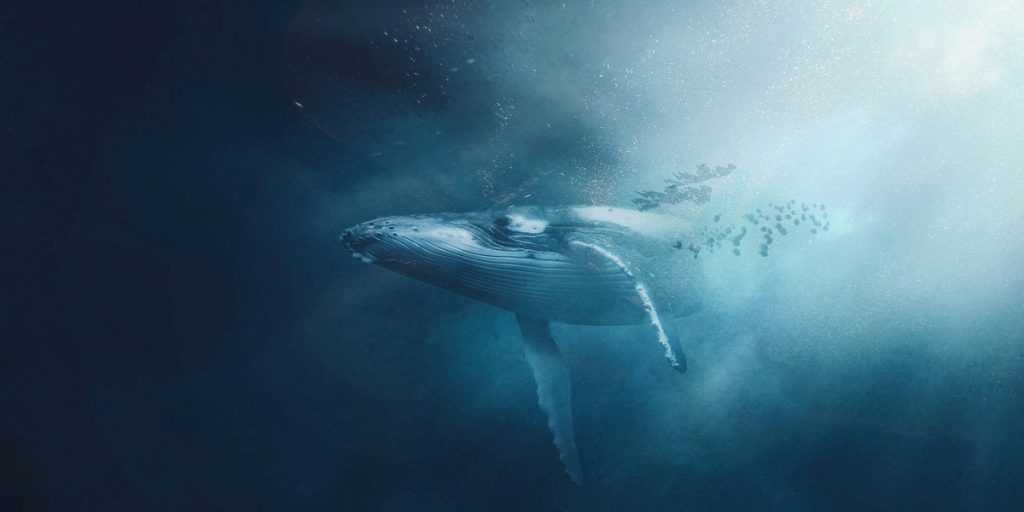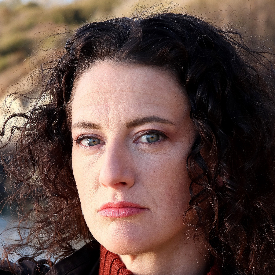Travis Rieder is a philosopher and bioethicist at Johns Hopkins University, where he directs the Master of Bioethics degree program. He also holds secondary appointments in the Department of Philosophy, Health Policy & Management, and the Center for Public Health Advocacy.
Below, Travis shares five key insights from his new book, Catastrophe Ethics: How to Choose Well in a World of Tough Choices. Listen to the audio version—read by Travis himself—in the Next Big Idea App.

1. Modern life is morally puzzling.
The modern world is full of ethical puzzles that go something like this: we, as individuals, feel some moral responsibility to change how we act in response to some terrible threat, but no action on our part can play a meaningful role in addressing that threat.
The paradigm case here is climate change. Nearly 20 years ago, the philosopher Walter Sinnott-Armstrong asked whether, given the realities of climate change, each of us is obligated to decline joy rides in an inefficient vehicle—like, say, a Hummer. He called this an example of joyguzzling.
Most of us with environmentalist tendencies feel like the answer must be yes. You shouldn’t generate gratuitous emissions, given that they contribute to a catastrophic threat. But even relatively large contributions from an individual—like a transatlantic flight—are insignificant compared to the scale of the problem. Sinnott-Armstrong proposed that a joyguzzle may emit 14kg of CO2. A transatlantic flight may emit a metric ton of CO2. But dangerous climate change occurs when trillions of tons of CO2 accumulate in the atmosphere.
Thus, many of us feel we should reduce our carbon footprints, but no individual action makes a meaningful difference to the outcome. And if it won’t make a difference, on what grounds is there an obligation to refrain? After all, emitting isn’t wrong in itself. It’s only a problem because the combined effect of 8 billion other people doing it cooks the planet.
This description might make it sound like climate change is a unique problem, but it is not. The scale and complexity of the global population and the systems that connect us raise what I call “the Puzzle” of individual morality in the context of many massive, collective threats—including the harms from animal agriculture, consumerism, infectious disease, and more. The Puzzle is everywhere.
2. We need new moral tools.
This Puzzle of individual ethics in a time of collective threats arises because the moral tools that we unthinkingly rely on for reasoning our way through life are not fit for these kinds of problems.
Imagine that you have never heard of a car before. If you were shown a car, opened the door, and sat in the driver’s seat, you would look around at the controls and start developing an intuition about how to drive. Should you trust that intuition? Should you start messing around and try pulling out into traffic?
The empirical moral psychologist Joshua Greene says the answer is clearly no, for a very illuminating reason: there is no plausible story to explain how your driving intuition could have been calibrated, and so if you really did know how to drive, it would be a “cognitive miracle.” Since we shouldn’t believe in cognitive miracles, you should be very skeptical that you could safely pull out into traffic.
“Our conceptual tools for moral reasoning are not well-suited for solving problems like the Puzzle.”
I think we should say something similar about any of our intuitions about the Puzzle. Greene says that cases in which there is no plausible calibration story for our intuitions are “unfamiliar.” When we encounter unfamiliar cases we should assume the no-cognitive-miracles principle.
Climate change and related puzzles are unfamiliar to our species. For almost the entire history of humans, we have lived in small groups where the effects of one’s actions could be traced and noticed. Our moral judgments were developed, and intuitions have been calibrated through cultural and educational transmission in that environment.
As a result, our conceptual tools for moral reasoning are not well-suited for solving problems like the Puzzle. Paradigmatically, we evaluate the morality of actions by investigating notions like harm and benefit, respect, the dignity and autonomy of other people, and the like. However, none of these concepts are well-suited to the novel challenges of a population of 8 billion people, which is tightly connected through technology and economics, so our minuscule individual actions slowly add up to disaster. We need new moral tools for a new world.
3. Less duty, more reasons.
One way to dissolve the Puzzle of individual action in a time of collective disaster is to look for a way to explain how some actions are good and bad, recommended or not, without requiring that actions in such a case are required or prohibited. I do this by focusing on the concept of a reason.
Some time ago, my daughter and I were driving home, and right as we turned into our neighborhood, we saw a large turtle, very slowly making its way across a busy road. My daughter cried out that I needed to save the turtle, as there seemed no way that it would survive its ambitious mission without help.
Now, I don’t think we have duties to rescue wild animals. The world is chock full of animals in mortal danger, and we would find ourselves in a strange place if we thought that we were morally required to save them all (after all, do we save the gazelle from the lion or the lion from starvation?). However, what my daughter seemed right to point out was that I had a reason to rescue the turtle. If left to its own devices, it would likely get smashed, suffer, and die. Suffering and death are bad, and so they count in favor of my helping the critter to avoid it.
“We can make sense of the moral pull without implying a moral must.”
What this sort of story is supposed to make clear is that there can be something good or bad about actions without it being the case that one has a relevant duty. A reason is a consideration that counts in favor or against some action. In the case of the turtle, the fact that it would suffer and die if I did nothing counted in favor of rescue, so I judged that there was good reason to save the turtle.
This is not to blow out of proportion a story about a turtle, but rather to point out that there are—as my friend and colleague put it to me—degrees of “shouldiness” in our moral lives. Sometimes, we should do something, but it’s not a big deal if we don’t—it’s a “weak should”; it’s just recommended, and the stakes aren’t too high. But sometimes we really must do something—it’s a “strong should.” At the most stringent end of the spectrum is the concept of obligation or duty, while at the other end is the notion of a reason.
Because my individual actions don’t make a meaningful difference, we may not have a duty to stop all we do that contributes to massive, structural problems like climate change. So, it’s not the case that we must reduce our carbon footprint at every opportunity. But it is good to do so, and so we have a reason to take action. We can make sense of the moral pull without implying a moral must.
4. We have lots of reasons.
Once we recognize that we have reasons to act every time there is value in not contributing to some problem, we will realize that we have lots of reasons. Every time an action of ours contributes in a tiny way to some massive collective harm, we have a reason not to do it. Should you walk instead of drive? Pass on animal-sourced foods for a given meal? Try to use less energy at home? Minimize waste? There are good things about each, which means there are reasons to do them.
Additionally, all of those reasons are negative—they are reasons not to do something, or to withdraw (to varying degrees) from harmful systems. But there is also value to being part of good collective outcomes, which generate positive reasons, or reasons to do something. Consider: should you volunteer your time for the environmental movement? Or donate money to a climate organization? Doing either would make you a participant in some good collective effort. You would be part of a solution, so you have a positive reason to do those things.
Consider the case of deciding whether to buy an electric car. Because the world needs to phase out internal combustion engines, there is a strong reason not to participate in that old tech and to instead opt in to cleaner energy. However, it’s also true that the batteries that power electric cars require large amounts of cobalt, much of which is mined in the Democratic Republic of Congo under conditions that have been called modern-day slavery. Buying an electric car makes one a participant in green technology (that’s a reason for it), but also a participant in horrifying labor practices (definitely a reason against). The reality that we have moral reasons to care about how we contribute to massive structural problems and solutions makes clear that our current ethical situation is terribly complex.
5. I can’t tell you what you should do.
The complex, modern moral world demands some sort of decision procedure to help us organize our reasons. We need to triage various moral emergencies and the ways in which we respond to them.
To help us do that, consider my dear friends, Liz and Nate Brownlee, who run Nightfall Farm, a small, regenerative farm in southern Indiana. I stayed with them on their farm and interviewed them for Catastrophe Ethics because I am so impressed with how their entire lives are bound up in their moral mission to heal the land and provide good food to their community.
“We contribute in different ways according to our abilities and interests.”
When I asked them if they felt a moral requirement to do their work, they quickly dismissed the idea, noting that it suits their drive and their passion and that they would discourage anyone who didn’t feel similarly from following them. Their life is just too hard to sustain if it’s not the thing you feel compelled to do.
One central lesson I took from my time with the Brownlees is that there is so much hard moral work to be done that we should prioritize projects and responses in terms of our personal values, desires, drives, talents, and privileges. As a writer, speaker, and teacher, I have a certain skill set and opportunity for contributing to various efforts that my farmer friends don’t; just as their skill and occupation allow them to do all sorts of good that I can’t. This sort of division of moral labor seems not only appropriate but necessary. We need regenerative farmers, and we need writers. We also need people to fund various moral efforts, and people to work in them. Sometimes, the people with money don’t have the time, and vice versa. We contribute in different ways according to our abilities and interests.
But our work is never done. There’s always more you can do, and it would be better if you did. Part of the triaging of our moral efforts is constantly managing the balance between the moral pull of near-infinite reasons and the burnout of trying to do everything possible. Aligning our efforts with our values, interests, gifts, and drives can help us walk this ethical tightrope.
To listen to the audio version read by author Travis Rieder, download the Next Big Idea App today:
































